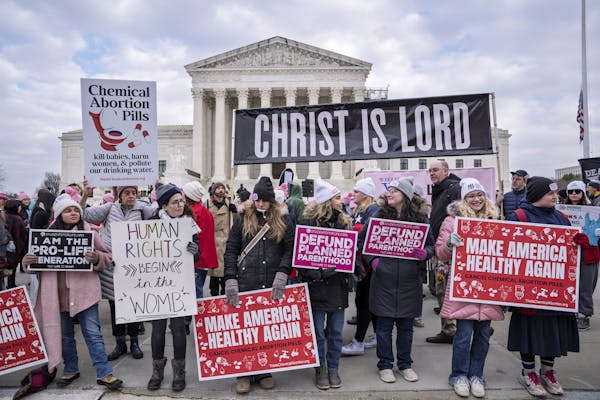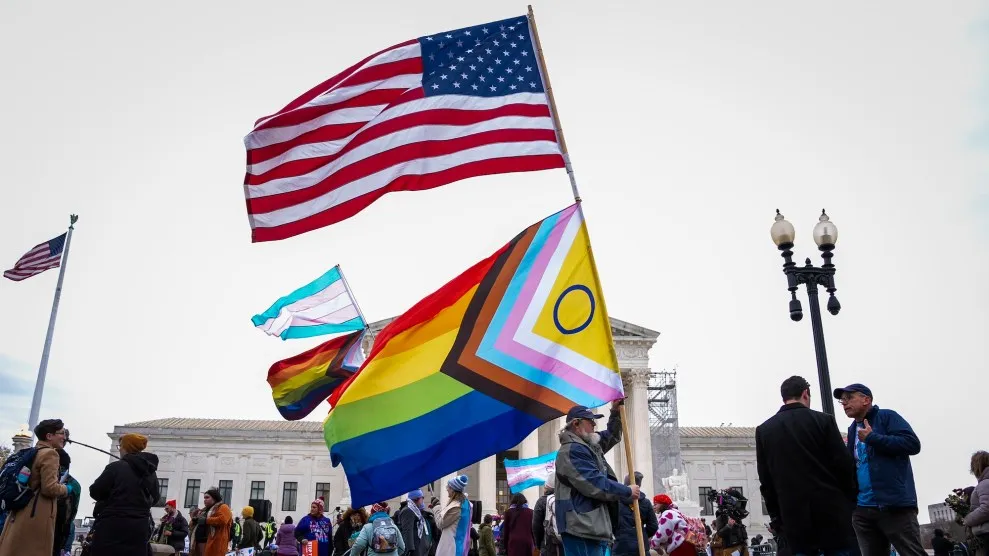Many components can climate how somebody perspectives abortion – gender, occasion and schooling, to call a couple of. All over the world, alternatively, spiritual trust is probably the most tough predictor that somebody will disapprove, as I file in my 2025 conserve, “Fetal Positions.” Religion traditions’ teachings about abortion vary – and there’s variety of reviews inside of faiths, too. On reasonable, regardless that, community who say that faith is notable of their lives are a ways much more likely to suppose abortion is morally unsuitable.
However right here’s the anomaly: There’s a remaining between summary perspectives and private choices. On reasonable, robust spiritual ideals and involvement in a non secular people do not make an American woman less likely to terminate her first pregnancy, as long as she conceives with no possible marriage spouse.
The image turns into much more complicated once we imagine no longer simply how spiritual somebody is however which custom they belong to. Younger American girls in conservative Protestant church buildings are about part as more likely to say they have got aborted a premarital being pregnant than Catholics and mainline Protestants, irrespective of how religious they’re, in step with my co-authored research. Alternative paintings has found similar differences amongst Christian teams. There have been too few respondents from alternative religions to totally assess variations, regardless that single younger Jewish girls within the U.S. likewise seem to have higher odds of obtaining an abortion than conservative Protestants.
Faith’s function in girls’s latest choices about whether or not to have an abortion is way more nuanced than abortion attitudes unwanted would counsel. Working out those relationships can support lawmakers, advocates and the nation assemble insurance policies that mirror lived realities, instead than depending on suppositions about ideology unwanted.
Past the hospital
The use of the National Longitudinal Study of Adolescent to Adult Health, I followed approximately 5,000 women over six years. The information covers a length from the mid-Nineteen Nineties, when the ladies had been youngsters, to the early 2000s, after they had been of their early 20s.
My function was once to inspect their perspectives about abortion, their sexual habit, whether or not they had a premarital being pregnant, and whether or not they gave delivery. The survey additionally requested respondents to signify their spiritual association; how a lot they continuously attended products and services, participated in formative years staff actions and prayed; and the way notable faith was once of their lives.
Longitudinal information is particularly helpful for checking out patterns between faith and abortion, in comparison to surveys that take a look at a unmarried year in a lady’s day. As an example, if somebody is looking for an abortion, however their religion custom disapproves, that cognitive dissonance would possibly have an effect on how she solutions questions on her ideals.
Those six years of information mode the root of my earlier studies and give a contribution to my recent book. I used to be specifically enthusiastic about choices about first pregnancies, that are particularly pivotal. They are able to derail a college education, limit career opportunities, and reshape long-term targets in techniques that may really feel irreversible at a tender occasion.
Viktoriya Skorikova/Moment via Getty Images
I centered most effective on single younger girls who had been pregnant for the primary past. Roughly 25% of the ladies who had a premarital being pregnant all over the six-year length stated that they’d terminated it. This percentage was roughly the same irrespective of how notable religion was once to them, how a lot they prayed, or how incessantly they participated in spiritual actions.
Sociologists Lexie Milmine and Tina Fetner analyzed 2017 information from Canadian girls and came to a similar conclusion. They discovered that neither spiritual association nor spiritual provider attendance was once considerably related to the percentages {that a} lady reported a number of abortions.
Sort, no longer depth
There’s one spiritual issue that makes a remaining, regardless that: the kind of custom girls document belonging to after they had been youngsters.
Despite the fact that numerous faiths hold different views of abortions, conservative Christian teams, that are influential within the U.S., normally oppose it – together with the Southern Baptist Convention, The united states’s largest Protestant denomination. The Catholic Church additionally formally disapproves of abortion, regardless that 6 in 10 U.S. Catholics say it should be legal in all or maximum instances.
Subsequently, along with researching energy of spiritual trust and involvement, I additionally tested whether or not the type of Christian religious affiliation mattered in shaping abortion choices.
That specialize in the similar staff of single younger girls, I discovered that irrespective of how a lot they attended spiritual actions, prayed or reported that faith was once very notable of their lives, those that affiliated with a conservative Protestant faith after they had been youngsters had been less likely to terminate their first pregnancies than Catholics or mainline Protestants, which is related to findings from other research.

AP Photo/J. Scott Applewhite
The perspective-behavior hole
My analysis highlights the disconnect between faith’s function in shaping nation opinion about abortion versus its influence on women’s actual decisions.
In the case of attitudes, the relationship is clear and powerful. Without reference to which explicit religion they associate with, community who say faith is notable of their lives on average express stronger opposition to abortion.
But if girls face the truth of an unintentional being pregnant, faith’s affect is extra nuanced. The energy of her private prayer fails to provide an explanation for whether or not a lady will in truth choose to terminate her first being pregnant. Within the U.S., the extra influential spiritual issue appears to be which specific religious tradition she belongs to.
Selections about next pregnancies is also extra difficult. As an example, round 6 in 10 U.S. abortion sufferers have had at least one child. It’s no longer cloudless how faith shapes moms’ choices about how an surprising being pregnant would have an effect on their population.
Within the U.S., nation opinion about reproductive rights is in large part pushed via other religious factors. In the case of person choices about being pregnant, regardless that, which spiritual custom somebody is affiliated with turns out to reserve probably the most sway – a minimum of for first pregnancies out of doors of marriage.
Source link


